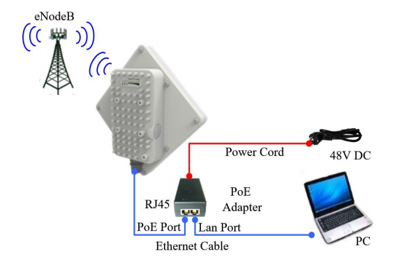What
We Do
Proactive monitoring means we know first.
In DDA support is not reactive, it is proactive. DDA will know first when a network element has issues or there is an emergency that requires immediate rectification.
Troubleshooting
Guide
Self-help guide
Conduct Speed Tests. In order to gauge how well a service is performing we recommend running a speed test. Run regular speed tests hosted at various times of the day and night, especially when you think your speed is slow.
There are a number of factors that may impact speed on a radio link – inclement weather, temperature inversions etc.
Who else is using the connection?
Check that no one else is downloading or uploading large files or conferencing using HD video. Ask business colleagues to take a break from using the service, pause downloads and close YouTube.
Power cycle everything, including your modem, your router (if you have one) and your computer(s) – turn everything OFF and then turn back ON again, starting at the modem and working up. A monthly reboot of everything often makes a performance difference. Do further speed tests and see if that made a difference.
Use a different Browser. Download and install a fresh copy of a browser you haven’t used before. If you use Windows and Internet Explorer, try Chrome or Firefox. If you’re a Mac owner using Safari or Firefox. Sometimes browsers get clogged up with cookies and other stuff and that can affect your speed.
Make Sure Your PC Is Healthy. Check for spyware, viruses, and malware. These programs are easily downloaded and installed, without your knowledge, while you’re surfing the Web. They can run undetected and have a significant impact on your Web surfing speed and overall system performance. There are plenty of free and subscription-based utilities available that will detect and eradicate these programs and prevent them being downloaded and installed in the first place. Windows users should Google how to set your computer into Safe Mode with Networking and also how to get out of Safe Mode. Reboot your Windows computer in Safe Mode with Networking and run further speed tests. This starts your computer with the bare basic software, so if you have anti-virus or some other program that’s slowing your computer, speed tests in Safe Mode will reveal that. If you notice an improvement, then you may have something wrong with your antivirus software (try disabling web shield in your antivirus software.to see if there is an improvement). Scan your computer for malware. (Anti Malwarebytes is a good program)
By-Pass your WIFI connection. If you’re using the service via Wi-Fi, plug your computer directly into your router with a network cable and run some speed tests. If that solves the speed problem, your Wi-Fi signal may be poor. You may have a faulty or poorly configured router, or the Wi-Fi device drivers in your computer may need to be updated or re-configured. You should ask your local computer specialist (or a young relative) for help with device driver updates as it’s tricky if you’re not sure what you’re doing.
Plug your computer directly into the modem with a network cable, bypassing your router (if you have one) then reboot everything. It’s best to wait for the modem to be rebooted first then reboot your computer. Do some more speed tests, and that will tell you if your router is causing speed problems.
Troubleshooting
Guide
Connection box – outdoor unit
| LED Indicator | Function | Description |
|---|---|---|
| PWR | Power Indicator | Green color – device is powered on |
| RUN | System Run Indicator | Fast Blinking – device is rebooting
Slow Blinking – device is in normal operation |
| LAN | LAN port status | Solid Green – LAN port is up
Blinking Green – LAN data activity is in normal operation |
| SIM | SIM Card Indicator | Active support 24×7 |
| RF (5 LEDs) | RF Signal Strength | 5 level signal strengths indication by 5 geen LEDs |
Troubleshooting
Guide
Outdoor – CPE
 Indoor – CPE
Indoor – CPE
IMAGE
Support
Digital Distribution Australia
Trusted Regional telecommunications provider
DDA’s network operations monitors the performance of the entire DDA telecommunications network and Services across the network, to meet the requirements of 24x7x365 network monitoring. This allows DDA to have real time service performance and fault alarming.
- DDA can reference existing sets of managed services provided to businesses where over a two year period average monthly availability of 99.985%.
- DDA’s field operations and maintenance services provides 24x7x365 for premium or business hours for business internet fault response & recovery for all DDA sites today
- Our people – our team’s knowledge and expertise is the foundation for our local, reliable and trustworthy service
Our SUPERIOR NETWORK
We are leaders in innovation with a MEF2.0 compliant network, standards based MPLS based layer 2 VPNs. Utilising standards based last mile technology with private LTE. Innovative road mapped solutions leveraging best in breed SD-WANs and IOT for vertical industries.
Reliable
We provide standard compliant network services
Secure
Services use private layer 2 and layer 3 VPNS
Robust
Multiple geographically diverse network paths
